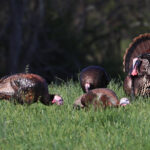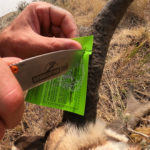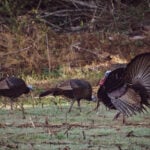Despite all the ugliness that came during the days of COVID, there were good things that came from that dark time. For example, the hunting community saw a boost in interest and opportunity like never before. For many states, hunting license sales saw a jump beyond anything we’ve seen in recent years. It was like the old days, when times were simple and everybody in town seemed to make time outdoors a priority in their life.
State fish and game agencies saw a shred of hope, thinking this may be the spark to reignite a passion among a declining hunting community. However, despite the uptick in interest during COVID, it appears that the numbers are again returning back to their downward trend. It raises the question, “What happened to the pandemic hunters?” Where are they now? Why did they leave?
While some states are accepting declining numbers as the norm, others are being more proactive to better understand rising and falling numbers among hunters.
The state of Michigan has been out front tracking the activity among its hunters, before, during, and after COVID. In 2020, there was a 5% boost in deer hunting license sales. However, according to a recent report from the state’s Department of Natural Resource, deer hunting license sales were down almost 4 percent in 2021 from 2020. According to the DNR, total deer hunting license sales decreased by 48,792 last year. It’s a drop in 3.6 percent from the 1.37 million sold in 2020.
The report goes on to say that participation as a whole was down throughout the hunting season. According to the DNR, about 537,014 people participated in all three deer hunting seasons last year. That’s nearly 5 percent less than the number of people hitting the deer woods in 2020.
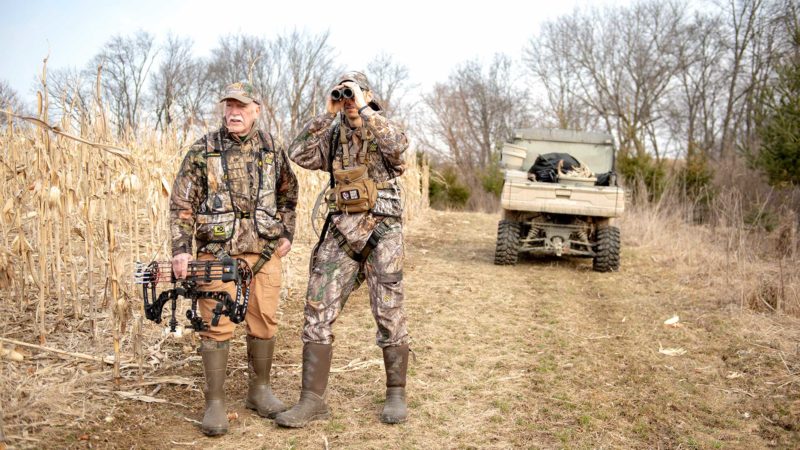
“Because of the pandemic, we saw a lot of people have more time available to them which freed up opportunities for hunting and other outdoor recreation pastimes,” said Chad Stewart, the DNR’s deer, elk, and moose management specialist. “When the pandemic restrictions were lifted, people found themselves back in their regular routines.”
Despite their hopes for a revival among the Michigan hunting community, the agency now concedes that the boost during COVID was short lived. “Realistically speaking, it was a blip,” says Tom Baird of the NRC. “The decline in participation has been an ongoing trend for a number of years now. As people age out of hunting and fishing, they aren’t being replaced in the same numbers by younger people.”
Michigan has been experiencing a 2–3 % annual decline in participation since the 1990s. “Without the pandemic bump, those numbers would have continued to decline,” says Chad Stewart, a specialist at the DNR. “But it was never going to be a reversal of a 20 to 25-year downward trend with the challenge we have to sort out.”
The big question is, why are the numbers declining?
As you might expect, there are a number of variables that contribute to the decline of hunter numbers. There’s a multitude of options vying for our attention these days. Technology now allows most every aspect of life to be experienced virtually. Kids don’t have to go outside to hunt and fish these days. They can make it happen through a video game or gadget. And that’s sad.
Unless you’re intentional with your time, busy work and family schedules leave little time for outdoor pursuits. It’s just the way it is for many folks in today’s culture. You truly have to make the time and effort to positively promote hunting and the outdoors to your family and friends if you want to experience a change.

“Hunting just isn’t part of our culture as much as it used to be,” says Nick Green, a spokesperson for the Michigan United Conservation Clubs. “As the baby boomers continue to die, we’re going to have to figure out how to fill their void.”
The bottom line – we can’t sit back with a hope and pray mentality that things will get better for the future of hunting. It’s gonna take more than a pandemic to fuel the fire in hunters for the long haul. Hunting should not be presented as a fad or seasonal sport that comes and goes. Hunting is a way of life. It’s what we do. It’s how we eat. It’s what we plan our days around.
For long term sustainability, it’s going to take a “each one reach one” mindset to build new hunters for the future. It’s a big investment. But it’s an investment that’s worth the sacrifice of our time, talents, and abilities.

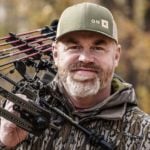 By
By 
